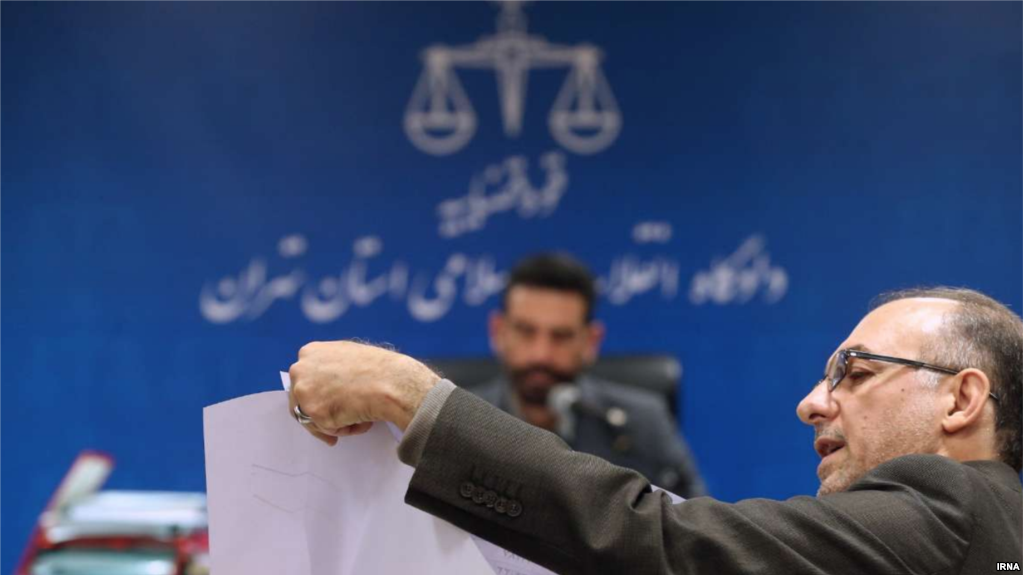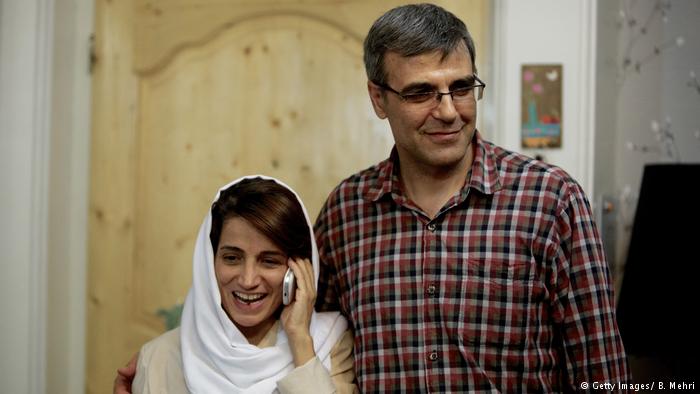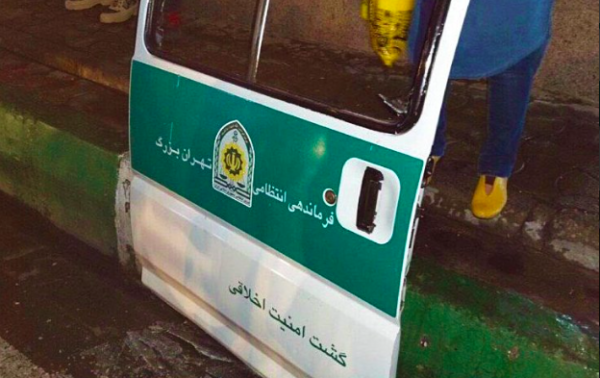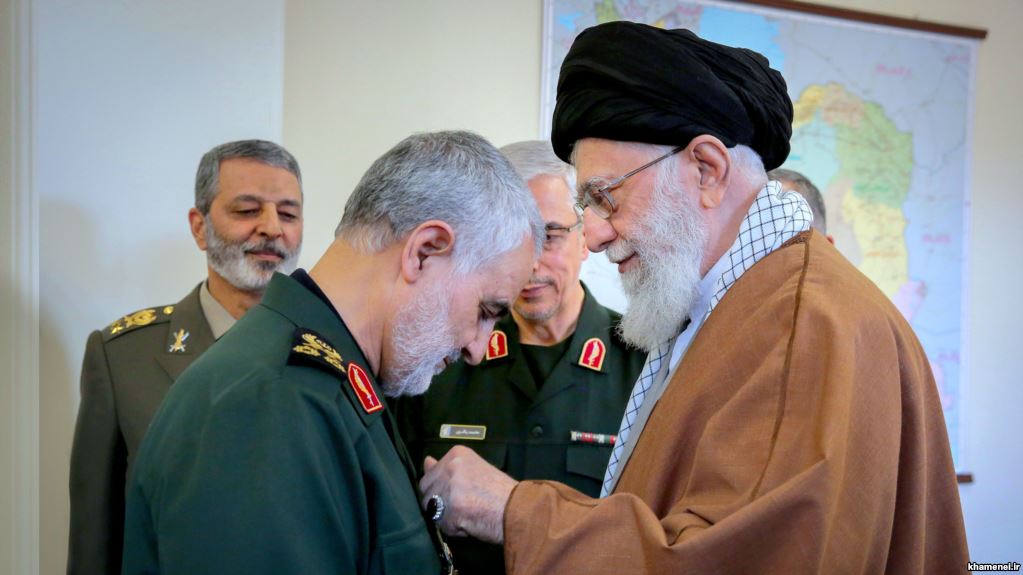
The main cause of promoting corruption in Iran
In today’s Iranian society, the main cause of promoting corruption and immorality is the government’s interference in economic affairs. The editorial of Tejarat daily suggests that the main solution to this problem is to put an end to the government’s interference in economic affairs and for it to respect individual freedom as well as the right of every individual to make their own choices.
As a result of the government’s interference and inefficient policies, Iranian companies and businesses have become polluted with corruption and the markets have become immoral. The current structure is producing rent-seeking, and the efforts to make the economy transparent are not fruitful as the state’s economy cannot be reformed.
Corruption has impacted healthy businesses as well. When we talk about morality, we mean actions based on reason, without destroying the interests of others. It is only natural when people pursue their own happiness and maximize their own interests. But the truth is that personal and collective interests are tied together.
The key to moral behavior is to maximize our own interests along with the interests of others and society. The redline of moral economic behavior, therefore, is the loss experienced by others and society. From this viewpoint, Iranian society is not on the right path. Morality has been buried in incorrect policies and by ignoring freedom.
The editorial adds that in a structure where the market isn’t working properly and prices are suppressed, the first thing to die is morality. Interfering in the market results in a violation of freedom, the right to choose, and individual property rights. The solution is to end the state’s interference in economic affairs and for it to respect freedom and the right to choose. In a society which has a centralized economy, morality is marginalized.
Tejarat – March 13
Iran and America’s political-security rivalry in Iraq
The editorial of Arman Emrooz addresses the complexities within the relationship between Iran, Iraq and America and how the Iranian President Hassan Rouhani’s recent trip can be significant in this regard.
Hassan Rouhani’s trip to Iraq aims to realize several main goals, and despite its considerable significance for trade between the two countries, it has political and even military implications as well. In view of the fact that 65% of Iraq’s population are Shia and Iran has had a prominent role in suppressing ISIS since 2014, groups with ties to Iran like the Popular Mobilization Forces have gained power in Iraq.
The editorial goes on to say that in the recent elections, however, a new group entered the domain of power in Iraq with its members mostly having studied in America and having a tendency towards the United States. The new ruling groups in Iraq are after two goals. One is to return to the Arab world, and the other is to promote relations with America. The United States has promised to make generous investments to reconstruct Iraq if its forces leave this country.
Politically, the Iraqi Government will ask Iran to control those forces affiliated with it, which still have arms and enjoy political and military influence in Iraq. But it is not clear whether these forces will hand over their weapons and turn into a military party. It is tough for Iraq to have many sources of power in the country.
The editorial adds that as for commerce, Iran has extensive trade with Iraq and is trying to preserve and expand it. But rivals like Turkey and Saudi Arabia have made it difficult for Iran to do so. Iraq’s purchases from Iran can be easier. Nevertheless, recent remarks by an Iraqi authority indicates dissatisfaction with Iran’s influence in Iraq, and he asked for it to decrease.
Iraq has a defense contract with America, according to which the number of US military sites and bases will increase in Iraq. America doesn’t want Iraq to get close to Iran, as was the case in the past. America’s strategy in Iraq and Syria, therefore, is a new one, which aims to prevent Iran’s influence from increasing in Iraq and Syria.
Arman Emrooz – March 12
The significance of Rouhani’s trip to Baghdad
Hassan Rouhani went to Iraq, heading a big economic and political delegation. This is Rouhani’s first trip to Baghdad during his presidency. The editorial of Jahan Sanat Daily goes over the significance of this trip.
This trip’s first significance is related to the developments that – under the influence of Arab circles – have proved to disadvantage Iran. As the evidence indicates, Arab circles led by Riyadh do not agree with the influence of Iran in four key capitals in western Asia – Damascus, Baghdad, Beirut, and Aden – and see it as a key factor in conflicts and crisis in western Asia. As Baghdad is a part of the Arab world and it can act as a mediator in diplomatic relations for countries in western Asia, Rouhani’s trip can provide the opportunity to solve Tehran’s diplomatic crisis with Arab circles.
The editorial goes on to say that this means that Iraq has an exceptionally suitable relationship with regional countries and can help in alleviating and resolving diplomatic disputes in the region. This trip, moreover, can be effective in resolving other crises in western Asia. With a meaningful approach to Baghdad, Tehran can use it to resolve the Syrian crisis.
This trip can also have a message for Trump’s administration which is trying to turn Iraq into a front for its rivalry with Iran. As such, the message of this trip for Trump’s administration is that the Iraqi Government keeps its doors open to other countries including Iran, in order to provide common, mutual interests. It will not allow Iraq’s soil to be used by a third country against Iran.
The editorial adds that this trip is significant from an economic viewpoint as well. Washington has repeatedly tried to disrupt Tehran-Baghdad relations; nevertheless, the evidence shows that the economic relationship between the two countries still continues. Tehran and Baghdad have a joint relationship in the fields of oil, and gas as well as in banking and financial transactions. It is said that during the past 8 years, the commercial trade between Iran and Iraq has increased from $2 billion to $14 billion.
As Baghdad is a key player in the region it will be damaged by Washington’s sanctions against Tehran, it won’t certainly give into US pressure, and Tehran can count on expanding trade relations with Iraq to sidestep the US sanctions.
Jahan Sanat – March 11

Embezzlement to save the ‘Iranian establishment’: “Biggest scam in Iran’s history”

Economic cases and putting defendants on trial in “special courts” is no longer something new in the Islamic Republic. Nevertheless, the last case of economic corruption — related to the Iranian Petrochemical Commercial Company (PCC) — concerns embezzlement valued at 6.6-billion-euros, the biggest in the history of Iran.
The embezzlement case against PCC has 14 defendants. According to the Islamic Republic’s authorities, the defendants – under Mahmoud Ahmadinejad’s presidency – had received “huge amounts of money from foreign buyers,” and, in the name of “circumventing sanctions,” had converted it into Iranian currency before returning it to the government.
The lead suspect Reza Hamzelou, a former director of PCC, has denied his charges, claiming that he had helped Iran’s economy by what he did and should have been awarded for it.
The 14 suspects in this case — called the biggest scam in Iran’s history – have been charged with disrupting Iran’s economy by mishandling 6.66 billion euros of foreign exchange obtained from exporting petrochemical products.
Three defendants, in this case, are residing abroad at present, so their trials are being held in absentia. Iran’s judicial authorities say it has taken them five years to investigate this case.
The Islamic Republic has repeatedly used individuals including Babak Zanjani and Reza Zarab to circumvent sanctions, yet these people were later accused of embezzlement and corruption by the Iranian establishment.
Corruption is interwoven in the texture of the Iranian state that some economists believe that the reason why certain embezzlement and economic corruption cases are disclosed is to distract public opinion from bigger and more extensive corruption that takes place.
BBC Persian
VOA Persian
Lawyer sentenced to 38 years in prison, 148 lashes; Khamenei’s critic to copy 3 books by hand and 3 years in jail

Along with Ebrahim Raisi becoming the new chief of justice in Iran, the judiciary handed a cruel, and ridiculous sentence to prominent lawyer Nasrin Sotoudeh and to Khamenei’s vocal critic Abolfazl Ghadayani.
Nasrin Sotoudeh, a prominent lawyer and human rights activist, has been sentenced to 38 years in jail as well as 148 lashes, said her husband Reza Khandan, adding that the sentence was related to two cases. Khandan called the sentence “shocking”, emphasizing that his wife was only doing her job within the law and peacefully defended victims of human right violations.
Sotoudeh was charged with “assembly and collusion against national security”, “propaganda activities against the establishment”, “membership in the Defenders of Human Rights Center, the Legam campaign [against capital punishment] and the National Peace Council”, “encouraging people to corruption and prostitution as well as preparing the grounds for it,” “appearing without hijab in the judiciary,” “disrupting public order” and “disseminating falsehood to agitate the public mind.” Human rights organizations throughout the world objected to this “terrifying sentence” against Sotoudeh, calling it a “mockery of justice”.
In another case, an absurd, and childish sentence was given to Abolfazl Ghadayani, a political activist and an outspoken critic of the Islamic Republic’s Supreme Leader. Ghadayani was sentenced to 3 years in jail as well as to copying 3 books by hand.
Ghadayani has been sentenced to 2 years in prison for “insulting the leader”, and one year in prison for “disseminating propaganda against the establishment,” according to his son, Morteza. This political activist was also sentenced to “studying and copying by hand” three books, one of which is entitled “Knowing the Enemy” — a compilation of Ali Khamenei’s statements in this regard.
Ghadayani has repeatedly asserted Ali Khamenei is directly responsible for Iran’s current political and economic problems. In his latest piece, Ghadayani wrote that the Islamic Republic’s leader and its establishment cannot be reformed and the only way out of this “dead-end” is a “unified resistance” by all political trends.
He had also previously said Iran’s hurdles can be resolved only through dismissing Ali Khamenei from his position. Ghadyani co-founded the Mojahedin of the Islamic Revolution of Iran Organization (MIRO) and was a supporter of the Islamic Republic’s establishment until 2009. He was arrested and imprisoned for a year in 2009 in the wake of Iran’s unrest during the presidential elections. He was once again sentenced to one year in jail and 40 lashes in 2012.
Deutsche Welle
Radio Farda
Supporters of Iran’s establishment attack women protesting compulsory hijab

Amnesty International says that the footage recently shared on social media shows that Iran’s morality police and the supporters of Iran’s establishment persecute and attack Iranian women on a daily basis.
The footage shows that members of Iran’s morality police or plainclothed agents are attacking women. These attacks take place in the name of defending “public chastity”, and the perpetrators even attack women who try to film them, in order to stop the release of the footage on social media.
According to Amnesty International, women in Iran are randomly stopped by the morality police and are insulted or threatened. The police force them to cover their hair thoroughly under their veils and coerce them to clean their make-up. Women are often attacked physically.
In footage released recently, a woman was attacked by a plainclothed agent with pepper spray, and another footage shows a woman being threatened with a shocker. In another example, a woman’s car was stopped by the morality police in one of Tehran’s highways and, following a public scuffle with the police, a police agent threatened the people with his gun.
According to Iranian law, if women and girls above the age of 9 appear in public without hijab, they will face imprisonment from 10 days to two months, or they have to pay fine.
In recent years, the objection against compulsory hijab in Iran has increased.
Radio Zamaneh
Iran ranks 3rd in job discrimination against women

The Organization for Economic Cooperation and Development (OECD), on the occasion of International Women’s Day, announced the ranking of 120 countries according to their level of job discrimination against women.
Based on this report, Iran stands at 118 out of 120 countries, only to be followed by Pakistan and Yemen in job discrimination against women. The OECD announced that depriving women of equal job opportunities has resulted in a $6 trillion loss to the global economy.
Iran’s Statistics Center, in its latest study regarding the workforce in Iran, announced that of Iran’s roughly 27 million active workforce, only 19.7% are women.
The rate of unemployment of women with MA and PhD is higher than others. According to statistics, the rate of unemployment of women with MA and higher degrees has increased from 12% to 26% from 2008 to 2016.
The women unemployment statistic in the provinces of Yazd, South Khorasan, Kerman, Isfahan, Ilam, Khorasan Razavi, Sistan and Baluchistan, Fars, Golestan, Mazandaran, and Kohgiluyeh and Boyer Ahmad is more than the average for most provinces at 32%. In Yazd and Kerman, it reaches to 52%.
In Iran, based on law and common practices, women are not allowed to have certain jobs. They cannot be a president, judge, real estate agent, oil driller, work on ships or in the army, motorcycle couriers, fire department agents, or working in coffee shops.
Kayhan London
Khamenei awards highest military medal to Qassem Soleimani “wishes martyrdom” for him

The Islamic Republic’s Supreme Leader Ali Khamenei has given the highest military order to Qassem Soleimani, the commander of the Islamic Revolutionary Guards Corps’ Quds Force while wishing him the death of a martyr.
In a ceremony held in Soleimani’s honor, Khamenei noted that Soleimani has repeatedly risked his life when confronting the enemy.
Khamenei wished Soleimani prosperity in life and martyrdom at the end. “Not now, of course,” stressed Khamenei, “the Islamic Republic still needs you for years to come.”
During this ceremony in which a number of military commanders participated, Qassem Soleimani received the Order of Zolfaghar—Iran’s highest military honor—from Ali Khamenei. He is the first commander to receive this medal since the 1979 Islamic revolution.
The Order of Zolfaghar dates back to 96 years ago and was the most prestigious military medal during Iran’s imperial era. 13 military commanders received this medal under the Shah, including General Fazlollah Zahedi, Iran’s first prime minister after the 1953 coup.
Qassem Soleimani, who was promoted to Brigadier General in 2010, is in charge of Iran’s military operations abroad, including Iraq, Yemen, and Syria. His role in Iran’s foreign policy became more significant after the conflicts in Yemen and Syria.
Soleimani’s name is in the list of individuals sanctioned by the United States.
Radio Farda
